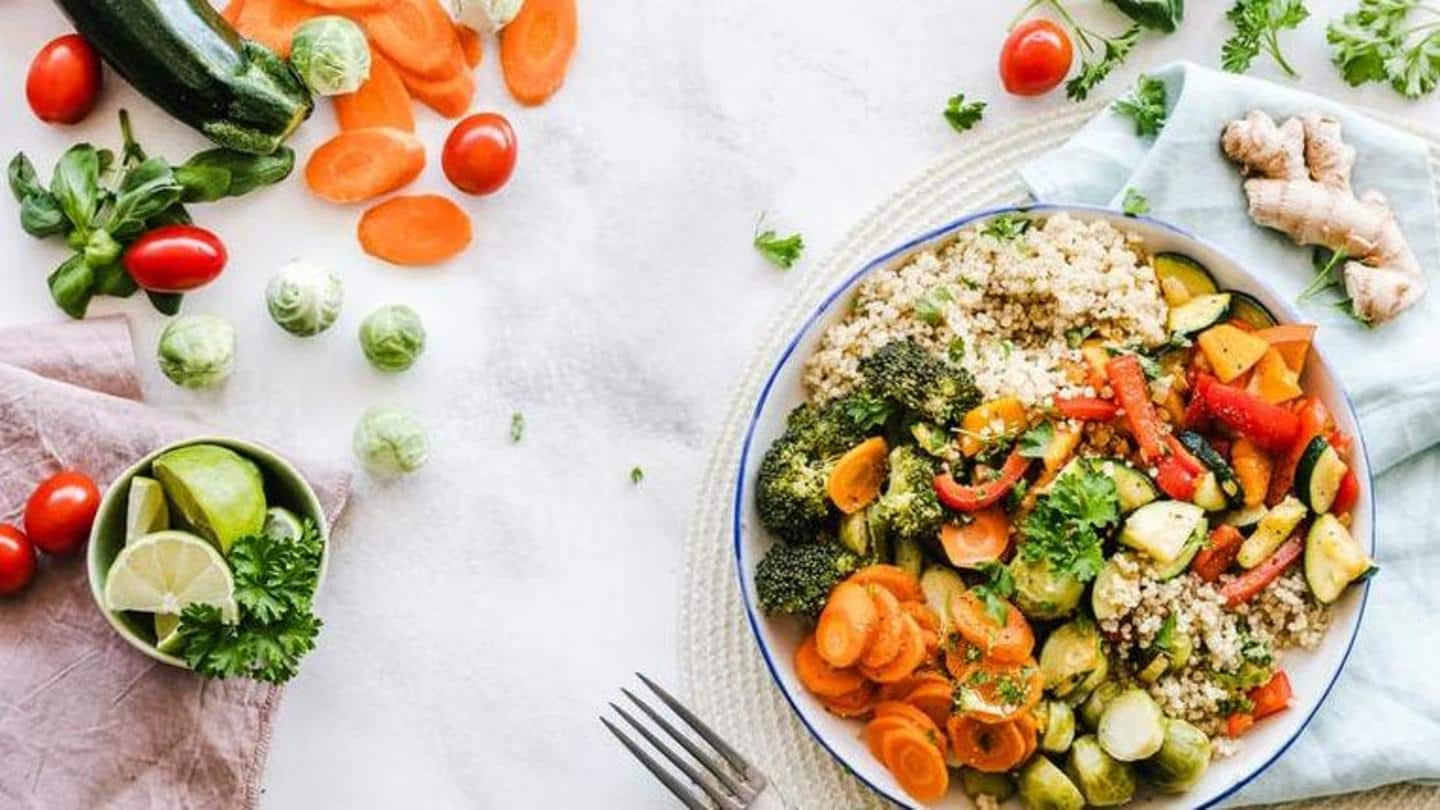
Decoding Keto diet for Indians
What's the story
The Keto diet involves low carb and high fat intake, aimed at reducing weight and boosting the metabolic rate of a person.
Known for yielding quick results, this diet has gained immense popularity in India.
The aim is for the body to convert healthy fats into energy by consuming fewer carbohydrates as compared to fats, thus accelerating the process of weight loss.
No overeating
Keto diet in Indian cuisine
It is very much possible to follow a Keto diet while eating Indian food.
Some tasty and healthy suggestions are, paneer or egg bhurji with vegetables, shallow fried mutton seekh kabab, chapatis, fruits like watermelon, Keto seed mix and nuts, mushroom curry, stir fry paneer, etc.
Make sure to have more fats and fewer carbohydrates and not partake in overeating.
No carbs
Foods to avoid on a Keto diet
The diet plan strictly prohibits you from consuming sugar, jaggery, honey, root vegetables like potato, yam, grains and cereals, processed foods, fried stuff, rice, tamarind, carbonated drinks, etc.
It also discourages eating starchy vegetables and high-sugar fruits.
Anything that increases your carbohydrate intake is detrimental to the Keto process.
Smoking and alcohol consumption is also forbidden when following a Keto diet.
Calorie count
Mistakes to avoid
It is essential to maintain a calorie count in order to prevent excessive snacking and overeating.
Having enough water is a must as insufficient fluid intake can slow down metabolism which would hamper the process of weight loss.
You must be careful to not have too much dairy like cheese, yogurt, or milk, which can ruin the Keto diet plan. Moderation is the key!
Fight diseases
Benefits of Keto
Going on a Keto diet can yield various benefits, besides weight loss.
The reduction of carb intake helps deal with skin issues like acne and also reduces blood sugar levels.
This diet is great for improving cholesterol levels for better heart health.
It also helps fight against type-2 diabetes, Alzheimer's, and Parkinson's disease and can strengthen brain and nerve cells.
Stomach issues and cramping
Disadvantages of Keto
The low carb intake in the diet can lead to constipation in some people, whereas the increase in fat intake can lead to diarrhea in others.
Loss of water weight also leads to loss of electrolytes which can cause heavy cramping.
Along with this, muscle loss due to moderate protein intake is another possible fact to rethink before beginning the diet.